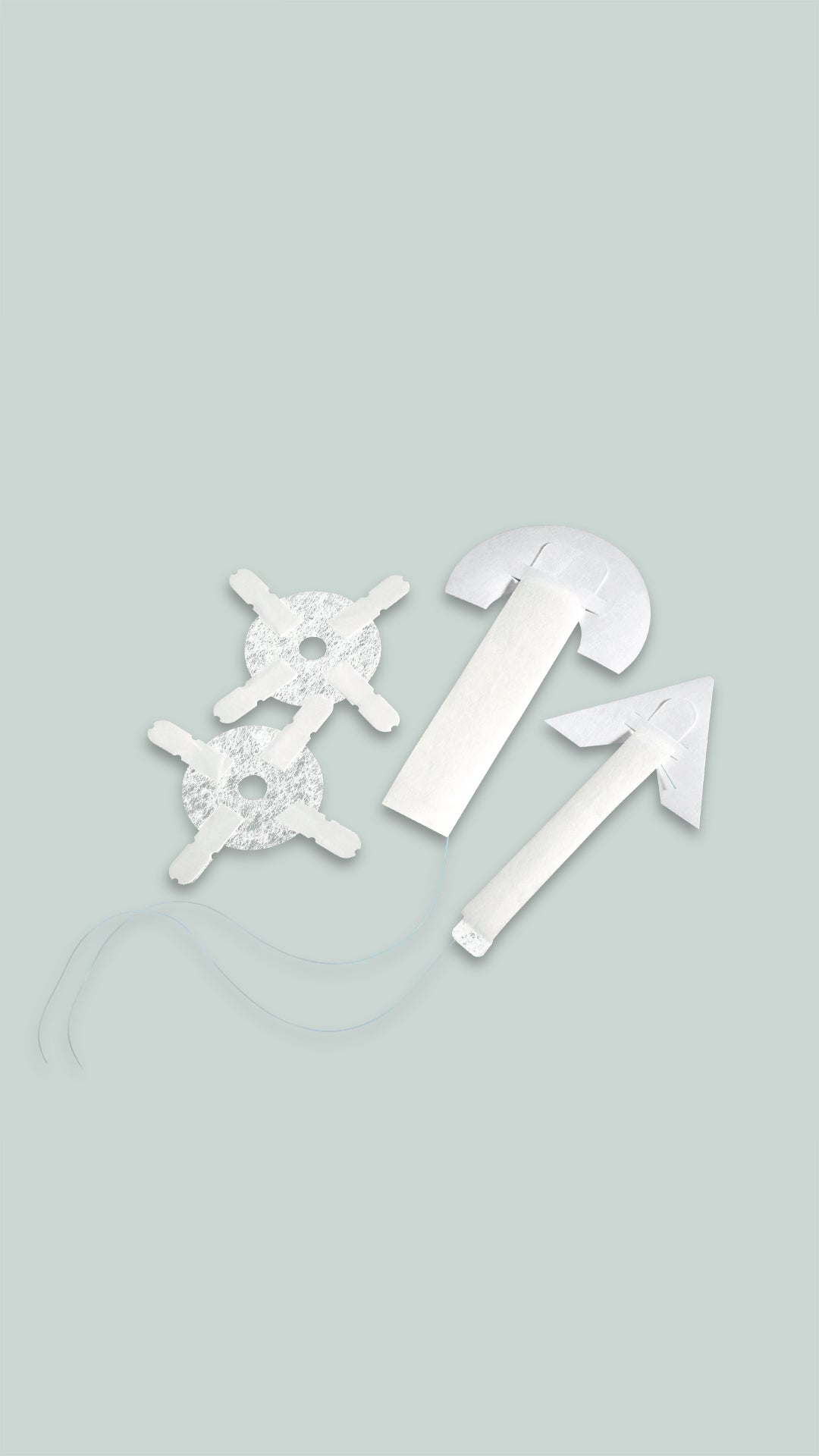
The GORE® SEAMGUARD® Bioabsorbable Staple Line Reinforcement has a legacy of providing successful outcomes.
85+ clinical studies* spanning 20+ years† supporting leak and bleeding reduction.1
* Data on file 2023; W. L. Gore & Associates, Inc; Flagstaff, AZ.
† First commercial marketing authorization, U.S. Food and Drug Administration in April 2003.
‡ Considering all systematic review and meta-analysis of published articles only that distinguish between types of staple line reinforcement.
- W. L. Gore & Associates, Inc. Clinical Performance with Staple Line Reinforcement. Scientific Literature Analysis (n = 8142 patients). Flagstaff, AZ: W. L. Gore & Associates, Inc; 2023. [Literature summary]. 231029724-EN.
- Gagner M, Kemmeter P. Comparison of laparoscopic sleeve gastrectomy leak rates in five staple-line reinforcement options: a systematic review. Surgical Endoscopy 2020;34(1):396-407. https://rd.springer.com/article/10.1007%2Fs00464-019-06782-2
- Nguyen NT, Longoria M, Welbourne S, Sabio A, Wilson SE. Glycolide Copolymer Staple-Line Reinforcement Reduces Staple Site Bleeding During Laparoscopic Gastric Bypass: A Prospective Randomized Trial. Arch Surg. 2005;140(8):773–778.
- Miller KA, Pump A. Use of bioabsorbable staple reinforcement material in gastric bypass: a prospective randomized clinical trial. Surgery for Obesity & Related Diseases 2007;3(4):417-422.

Refer to Instructions for Use at eifu.goremedical.com for a complete description of all applicable indications, warnings, precautions and contraindications for the markets where this product is available. RXOnly
CONFIGURED FOR ENDOSCOPIC SURGICAL STAPLERS:
INDICATIONS FOR USE: GORE® SEAMGUARD® Bioabsorbable Staple Line Reinforcement is indicated for use in surgical procedures in which soft tissue transection or resection with staple line reinforcement is needed. GORE® SEAMGUARD® Bioabsorbable Staple Line Reinforcement can be used for reinforcement of staple lines during lung resection, bronchial, bariatric, colon, colorectal, gastric, mesentery, pancreas and small bowel procedures.
CONTRAINDICATIONS: Not for the patch reconstruction of cardiovascular defects such as cardiac, great vessel and peripheral vascular arteries or veins.
CONFIGURED FOR CIRCULAR SURGICAL STAPLERS:
INDICATIONS FOR USE: GORE® SEAMGUARD® Bioabsorbable Staple Line Reinforcement is indicated for use in surgical procedures in which a soft tissue anastomosis with staple line reinforcement is needed. GORE® SEAMGUARD® Bioabsorbable Staple Line Reinforcement can be used for reinforcement of staple lines during bariatric, colon, colorectal, gastric and small bowel procedures.
CONTRAINDICATIONS: Not for the reconstruction of cardiovascular defects such as cardiac, great vessel and peripheral vascular arteries or veins.
CONFIGURED FOR ROBOTIC ENDOSCOPIC SURGICAL STAPLERS:
INDICATIONS FOR USE: GORE® SEAMGUARD® Bioabsorbable Staple Line Reinforcement is indicated for use in surgical procedures in which soft tissue transection or resection with staple line reinforcement is needed. GORE® SEAMGUARD® Bioabsorbable Staple Line Reinforcement can be used for reinforcement of staple lines during lung resection, liver resection, bronchial, bariatric, colon, colorectal, esophagus, gastric, mesentery, pancreas, small bowel and spleen procedures.
GORE® SEAMGUARD® Bioabsorbable Staple Line Reinforcement is also intended to be used for reinforcement of suture-lines and staple-lines (i.e., occlusion of the left atrial appendage during open chest procedures) during cardiac surgery.
CONTRAINDICATIONS: Not for the patch reconstruction of cardiovascular defects such as cardiac, great vessel and peripheral vascular arteries or veins
GORE® SEAMGUARD® Bioabsorbable Staple Line Reinforcement Configured for Robotic Endoscopic Surgical Staplers is not authorized for use in Canada.








